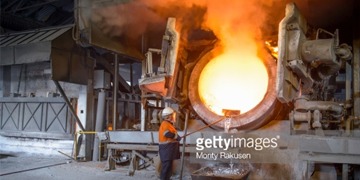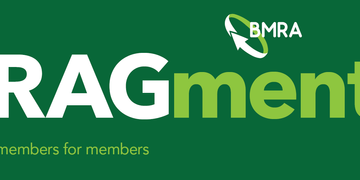The Metal Recycling General Operative level 2 apprenticeship pilot cohort goes live.
Sir Gerry Berragan, Chief Executive of the Institute for Apprenticeships today launched the first sector-specific apprenticeship for the metals recycling industry. The Metal Recycling General Operative (MRGO) is a level 2 apprenticeship open to employees of any age and is a 12-18-month assessment covering a number of industry areas that reflect the complexities faced by those working in metals recycling.
The pilot phase has apprentices from ELG, EMR, Recycled Products, Recycling Lives, S. Sackers, S. Norton and Sims Metal Management.
Apprentices will learn about the many areas of knowledge needed to fulfil an operative role in a metal recycling yard, including: environmental policy and procedures such as fire prevention plans; how to work in accordance with current legislation, including the Scrap Metal Dealers Act 2013; how to accept hazardous/non-hazardous materials; and, industry-specific health and safety procedures such as Safe Systems of Work and Control of Substances Hazardous to Health.
At the official launch held today at EMR in Willesden, Antonia Grey, Public Affairs and Communication Manager, British Metals Recycling Association (BMRA) said: “The apprenticeship was developed because we recognised the need for sector-specific qualifications, not only to bring new talent into the industry but also to provide a career path for those working in the sector. The scheme will also allow experienced employees in different areas to pass on valuable knowledge, which is often lost if they leave.
”The apprenticeship can be tailored to suit yards of any size and, in an unusual move for a level 2 apprenticeship, we built in the opportunity for the apprentice to specialise in one of five areas: weighbridge, material classification, end-of-life vehicles, materials handling and waste electrical and electronic equipment.
“We see the apprenticeship as a first step in promoting the metals recycling sector as a STEM employer. We will look to work with organisations that promote metals recycling and STEM, with myself and fellow BMRA representatives becoming STEM ambassadors.”
Susie Burrage, BMRA President added: “The government apprenticeship levy gives small and medium-sized businesses the opportunity to train employees in skills that are relevant to metals recycling. By supporting the industry from the ground up and giving young people the necessary training in key business areas, we hope that we can plug the skills gap, and keep metals recycling at the forefront of the circular economy.”
The apprenticeship will be rolled out to subsequent cohorts from March next year.
After completing the apprenticeship, candidates will also be encouraged to join the Young British Metals Recyclers (YBMR), the BMRA’s initiative targeted at those in the industry who are under 35. It gives members a helpful resource by providing learning and development along with bespoke training that can enhance their own reputation within the company that they work, develop their customer relationships and improve their career progression.
For further information, please contact:
Antonia Grey
t. 01480 455249
m. 07812037613
e. [email protected]
ENDS
Notes to editors:
1. The British Metals Recycling Association (BMRA) represents the £7 billion UK metals recycling industry.
2. The BMRA’s 260+ members include large and small businesses in the ferrous and non-ferrous sectors including shredder operators, merchants and traders.
3. Metals recycling is a globally competitive and environmentally important industry. It supplies secondary raw material, which preserves natural resources, saves energy and reduces CO2 emissions by up to 80 per cent in metals production.
4. The UK metal recycling industry is so efficient at recovering metal from end-of-life products that more is recovered than can be consumed domestically. As a result, around over 80 per cent of all ‘waste’ metal is now destined for export. This means we are competing against suppliers from the USA and Japan who are not required to characterise recycled metal as waste.
5. Recycling of metals is also the major contributor to the UK’s achievement of targets under EU Directives such as end-of-life vehicles and packaging.
6. In 2017, the UK exported over 9 million tonnes of recovered ferrous (iron and steel) metal and approximately 800,000 thousand tonnes of non-ferrous metal (such as aluminium and copper).



